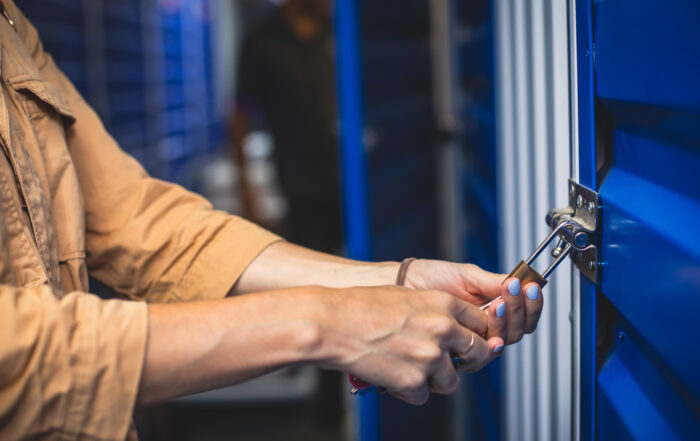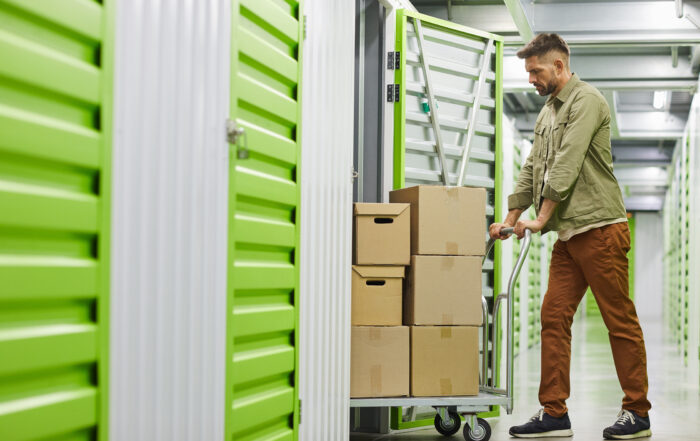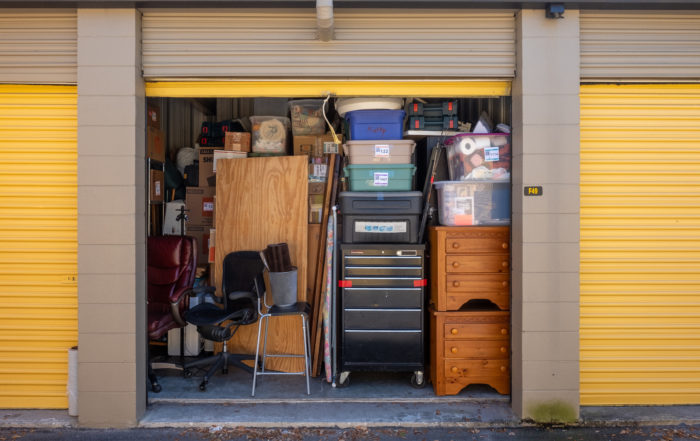Safeguarding Success: Self-Storage Security Measures for Business Asset Protection
Whether you’re a burgeoning startup, a small business owner, or a seasoned entrepreneur, safeguarding your inventory and equipment is essential for maintaining operational efficiency and sustaining growth. Amidst the hustle and bustle of daily operations, finding a reliable solution for business asset protection becomes imperative. This is where self-storage facilities step in, offering a secure haven for your valuable goods. Let’s delve into the world of self-storage security measures and explore how they play a crucial role in protecting your business assets.
Understanding the Importance of Security Measures
As a business owner, you understand the significance of mitigating risks and ensuring the safety of your assets. With self-storage facilities, you gain access to a range of security measures designed to provide peace of mind and safeguard your inventory. These measures extend beyond traditional locks and keys, encompassing state-of-the-art technologies and proactive strategies to deter unauthorized access and prevent theft or damage.
Fortifying Your Fortress: Self-Storage Security Measures
- Advanced Surveillance Systems: Picture a vigilant eye watching over your stored assets 24/7. That’s the power of advanced surveillance systems deployed in reputable self-storage facilities. High-definition cameras strategically positioned throughout the premises offer comprehensive coverage, leaving no corner unchecked. This not only serves as a deterrent to potential intruders but also facilitates swift identification and resolution of any security breaches.
- Access Control Systems: When it comes to protecting your business assets, controlling access is key. Modern self-storage facilities employ robust access control systems, ensuring that only authorized individuals can enter designated areas. From personalized access codes to biometric scanners, these systems provide an additional layer of security, limiting entry to authorized personnel and enhancing accountability.
- Secure Perimeter Fencing: A sturdy perimeter fence acts as the first line of defense against unauthorized access. Self-storage facilities equipped with reinforced fencing create a secure boundary, deterring trespassers and enhancing overall security. Coupled with advanced surveillance systems, perimeter fencing adds an extra level of protection, safeguarding your valuable assets from external threats.
- Well-Lit Environment: Darkness breeds uncertainty, making it an ally to those with malicious intent. To counter this, reputable self-storage facilities prioritize proper lighting throughout the premises. Well-lit corridors, parking areas, and entry points not only enhance visibility but also contribute to a sense of safety and security for tenants and their stored assets.
- On-Site Security Personnel: In addition to technological safeguards, the presence of on-site security personnel further reinforces the security infrastructure of self-storage facilities. Trained professionals equipped with the necessary expertise and resources provide an added layer of protection, ensuring round-the-clock monitoring and prompt response to any security incidents.
Securing Stored Inventory: Best Practices
Beyond the infrastructure provided by self-storage facilities, implementing internal security measures within your business is equally crucial. Here are some best practices to safeguard your stored inventory:
- Inventory Management System
Implementing a robust inventory management system allows you to track the movement of goods in and out of storage units effectively. By maintaining accurate records and conducting regular audits, you can quickly identify discrepancies and mitigate the risk of inventory shrinkage.
- Proper Packing and Labeling
Organize your inventory systematically, ensuring that items are securely packed and labeled. This not only streamlines retrieval processes but also minimizes the risk of damage during storage. Utilize sturdy containers and protective materials to safeguard fragile items and prevent breakage.
- Restricted Access Protocols
Establish clear protocols for accessing stored inventory, limiting access to authorized personnel only. Implementing strict access controls within your organization minimizes the risk of internal theft and unauthorized handling of goods.
- Employee Training and Awareness
Invest in comprehensive training programs to educate your employees about the importance of security measures and best practices for asset protection. By fostering a culture of security awareness, you empower your team to actively contribute to the safeguarding of business assets.
In the dynamic landscape of business, safeguarding your assets is non-negotiable. Self-storage facilities equipped with robust security measures serve as invaluable allies in this endeavor, offering a secure environment for your valuable goods. From advanced surveillance systems to access control measures, these facilities provide comprehensive protection against external threats. By complementing external security measures with internal best practices, you can fortify your defenses and ensure the safety of your business assets. Remember, when it comes to protecting what matters most, vigilance is key.
Recent Posts
Understanding Self-Storage Lease Terms: What to Know Before You Sign
Renting a self-storage unit is often one of those tasks that feels simple at first—pick a unit, sign a lease, move your stuff in. But if you’re like most people, the fine print on that [...]
What Not to Do When Using a Self-Storage Unit: 9 Common Mistakes to Avoid
Self-storage units are a convenient and affordable way to store everything from furniture and keepsakes to business inventory and seasonal gear. Whether you’re moving, downsizing, or just trying to declutter your space, renting a storage [...]
How to Keep a Storage Unit Clean and Tidy
A self-storage unit can be a lifesaver when you need extra space, but without proper organization and upkeep, it can quickly become cluttered. A clean and tidy storage unit not only makes it easier to [...]



